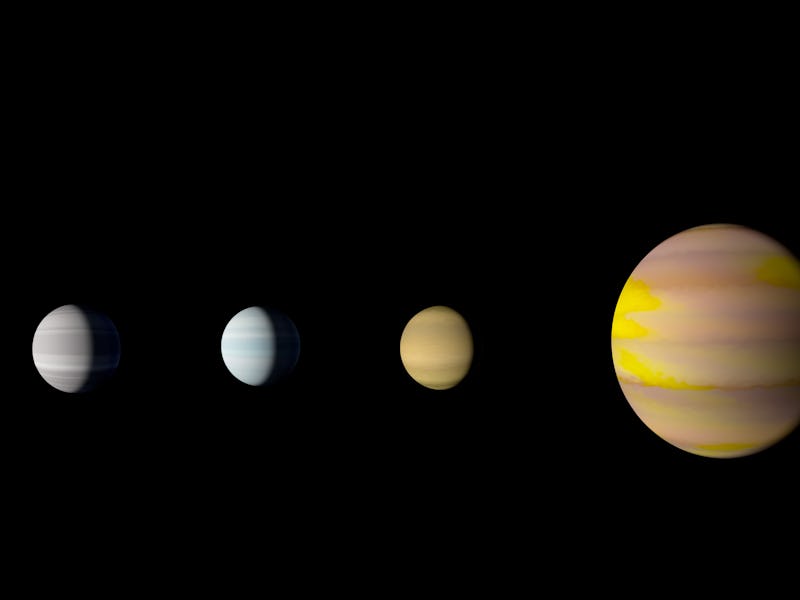Will Google's A.I. Put Astronomers Out of Work? NASA Says No
Human astronomers aren't out of work... yet.

In 1781, William Herschel discovered Uranus when he peered into his telescope and realized one of the stars he was observing was, in fact, a planet. In 1930, Clyde Tombaugh discovered Pluto after months of painstakingly comparing astronomical images for any sign of movement. And now, in 2017, Google A.I. discovered a planet orbiting the distant star Kepler-90 by sifting through data and making connections humans would miss. Has automation come for the planet hunters?
NASA addressed this question Thursday while announcing the discovery of Kepler-90i, the newly found eighth planet of a solar system located 2,545 light-years from Earth. During the press conference, NASA scientists politely but firmly said that no, flesh-and-blood astronomers aren’t going anywhere in response to a reporter’s question.
But this new finding does reveal how big an assist neural networks can provide in uncovering traces of exoplanets that would elude human analyses. As detailed in a paper in The Astrophysical Journal, the Google AI looked at data from the Kepler space observatory, which has spent the past eight years scanning the cosmos for the minuscule flickers in the brightness of stars that are the telltale sign of planets orbiting around them.
Here’s a NASA video on how the AI made the discovery.
As NASA explains, machine learning has long been a part of researchers’ work with the data from Kepler, which monitors some 145,000 stars. Never before though had AI been given this much latitude to search for and pull out the weakest signals for previously missed planets.
“We got lots of false positives of planets, but also potentially more real planets,” NASA astronomer Andrew Vanderburg said in a statement. “It’s like sifting through rocks to find jewels. If you have a finer sieve then you will catch more rocks but you might catch more jewels, as well.”
Vanderburg and Google AI software engineer Christopher Shallue collaborated on the project, in which they trained the neural network using 15,000 already explored signals from the Kepler data. Once it had achieved 96 percent accuracy, the AI got to work.
Kepler-90i is its first confirmed discovery, but the duo hopes it won’t be its last. There’s still 144,999 more star systems to examine, after all.